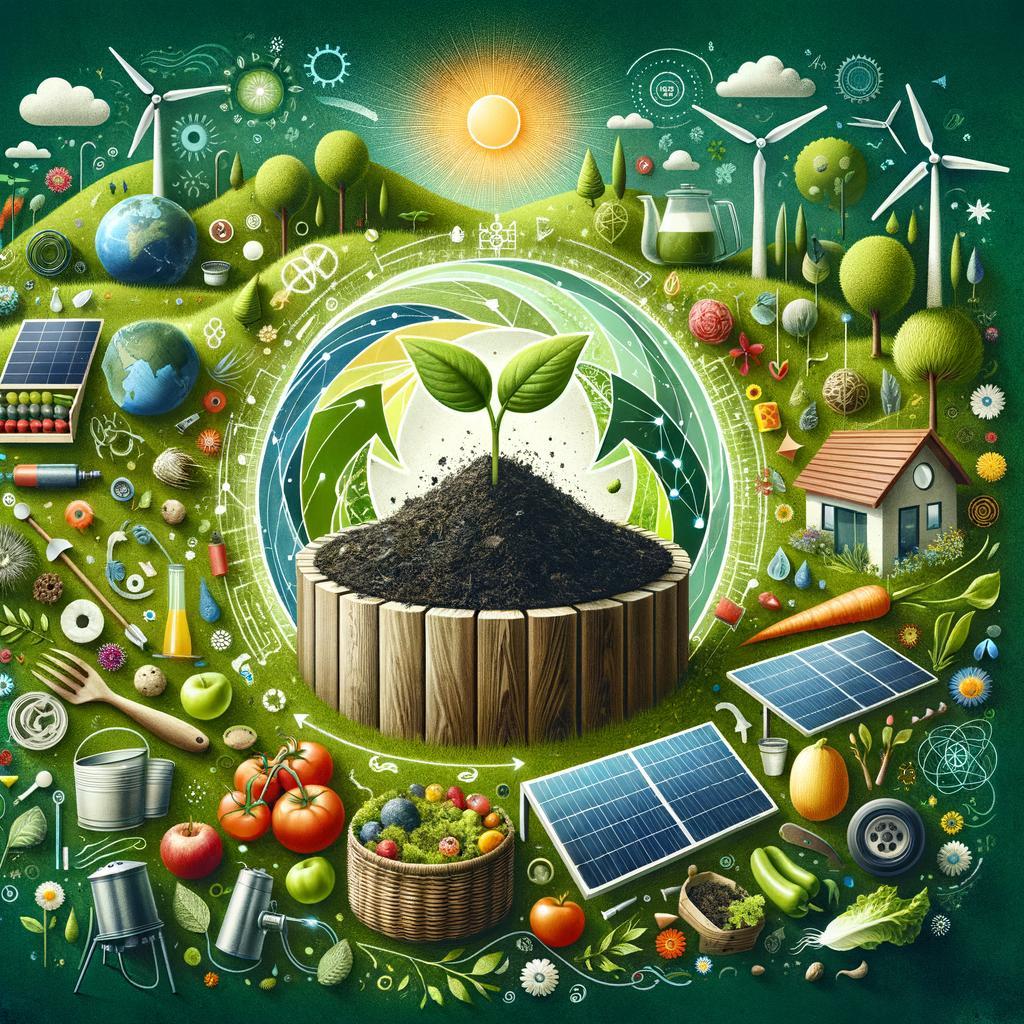Benefits of Composting for a Sustainable Life
In today’s world, sustainability is more than just a trend; it’s a necessity. Among various eco-friendly practices, composting stands out as a simple yet powerful tool that everyone can utilize. This comprehensive guide explores the myriad benefits of composting, not only for your garden but for the entire planet. Join us as we dig deep into how composting can lead to a more sustainable life!
What is Composting?
Composting is the natural process of recycling organic matter, such as leaves, food scraps, and yard waste, into a rich soil amendment known as compost. This process transforms waste into a valuable resource, enhancing soil health and reducing the need for chemical fertilizers. Let’s explore the benefits of composting in detail below.
The Environmental Benefits of Composting
Composting is an effective way to impact the environment positively. Here are some critical environmental benefits:
- Reduces Landfill Waste: Composting diverts organic materials from landfills, reducing waste mass and lowering methane emissions, a potent greenhouse gas.
- Improves Soil Health: Compost enhances soil structure, increases its ability to retain water, and encourages beneficial microorganisms.
- Conserves Resources: By using compost, you reduce the need for chemical fertilizers and pesticides, lowering your carbon footprint.
- Encourages Biodiversity: Composting promotes a thriving ecosystem, supporting beneficial insects, worms, and microorganisms.
Health Benefits of Composting
Composting not only supports environmental health but also contributes to human health:
- Safer Food Production: By using compost, you’re less likely to introduce harmful chemicals into your homegrown food.
- Reduces Pollution: Effective composting mitigates runoff and keeps harmful substances from entering waterways, improving water quality.
- Enhances Your Diet: Composting enables you to grow your fruits and vegetables, providing access to fresh, nutritious food.
Practical Tips for Successful Composting
Getting started with composting is easier than you think. Here are some practical tips:
- Choose the Right Bin: Select a compost bin suitable for your space, whether it be a classic outdoor bin, a tumbling composter, or a worm bin for indoors.
- Balance Greens and Browns: A successful compost pile needs a mix of ‘greens’ (nitrogen-rich materials like fruit scraps) and ‘browns’ (carbon-rich materials like dried leaves).
- Aerate Regularly: Turn your compost every few weeks to introduce oxygen, speeding up the decomposition process.
- Monitor Moisture Levels: Keep your compost pile moist but not soggy; it should feel like a damp sponge.
Case Studies: Composting Impact Across Communities
1. Community Composting in San Francisco
San Francisco’s composting program has successfully diverted 1.1 million tons of organic waste from landfills since its inception. This initiative not only improves local soil health but also educates residents on sustainability practices.
2. Urban Gardening Projects in New York City
In NYC, community gardens utilize composting to enrich city soils. These projects help transform neglected spaces into vibrant gardens, providing fresh produce and fostering community bonds.
Personal Experience: Transforming My Waste into Gold
As someone who started composting a few years ago, I can attest to the benefits. Initially skeptic, I began with a small kitchen composter. Within months, I had rich, dark compost that enriched my garden and boosted my plant’s health. The joy of growing my vegetables with homemade compost is unparalleled!
The Economic Benefits of Composting
Composting can also lead to significant economic advantages:
- Reduces Waste Disposal Costs: By producing less waste that needs disposal, households can save money on garbage fees.
- Enhances Property Value: Well-maintained gardens with healthy soil can boost property appeal and value.
- Provides Garden Solutions: Composting reduces the need for store-bought fertilizers, saving you money in the long run.
Composting Techniques to Explore
Consider implementing diverse composting techniques to find what works best for your lifestyle:
- Hot Composting: A quick method involving maintaining high temperatures to hasten decomposition.
- Cold Composting: A straightforward approach involving layering materials over time without regular turning.
- Worm Composting (Vermicomposting): Utilizing worms to process kitchen scraps rapidly.
Conclusion
Composting is an easy and impactful way to contribute to a sustainable life. It benefits the environment, enhances personal health, saves money, and yields high-quality soil for gardening. Whether you’re an experienced composter or just starting, understanding the benefits can encourage you to be more environmentally conscious. So, roll up your sleeves and start composting today—your garden, your health, and the planet will thank you!






